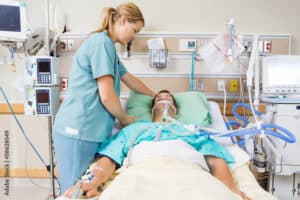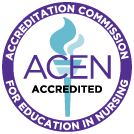Nursing is a well-known occupation. This job can be a rewarding one, as well as a good way to make a living. You may know a little bit about nurses, but do you know what it takes to become a registered nurse? Below, you can learn more about exactly what registered nurses are and how to become one.

How to Become a Registered Nurse Table of Contents
- How to Become a Registered Nurse
- What is a Registered Nurse?
- How Do You Become a Registered Nurse?
- What Will a Nursing Associate’s Degree Teach You?
- Resources and References:
What is a Registered Nurse?
A registered nurse is someone who works in a clinic or hospital to assist doctors in providing care to patients. Nurses can assess patient medical history, take vital signs, administer patient medication, perform medical tests, analyze the results of medical tests, and more.
When talking about working as a nurse, you may have heard about LPNs and RNs. RN stands for a registered nurse. Registered nurses have to have a college degree from a nursing program. An LPN or licensed practicing nurse does not hold a college degree, but they do have some formal training. LPNs typically report to RNs and perform more basic and entry-level duties.
How Do You Become a Registered Nurse?
Now that you know what a registered nurse is, you can learn about how to become a registered nurse. Check out the steps below.
- Get a High School Diploma – The first step to becoming a nurse is to get your high school diploma or equivalent. You will not be able to become a nurse if you do not have that education first. Further education is required, and you need to have a high school diploma as a base.
- Complete at Least a 2-Year Associate Degree – The next step is to complete at least a 2-year associate degree in nursing. If you want to be a registered nurse, at least a 2-year nursing degree is required. However, people can also get a 4-year bachelor’s of nursing degree to become a nurse. That process just takes longer than getting an associate degree in nursing.
- Pass the NCLEX Exam – After you have completed your schooling, you have to take and pass an exam that tests your knowledge and ability to be a nurse. The NCLEX exam is given by the National Council of State Boards of Nursing. This test has a minimum of 75 questions that you are required to answer. These questions cover topics like patient care, detection and prevention of disease, pharmacology, and more. You have to pass this exam to become a registered nurse.
- Apply for an RN License – Once you have passed your NCLEX exam, you can apply for state licensure as an RN. You need to have a nursing license in the state you want to work in. Each state may have slightly different requirements when it comes to state licensure, so you should be sure to look up your individual state. For example, some states have certain fees for your license, and it may take a certain amount of time to get your nursing license.
- Find a Job – After you have your nursing license, you can find a job in your state. Working in a physician’s office or hospital is a great way to start your nursing career.
Above, we talked about how you can become a registered nurse. There are a few different steps that you need to complete, but the nursing education is the most important one because it sets you up for passing your exam and getting your license. Learn more about what you will learn during your nursing associate degree below.
What Will a Nursing Associate’s Degree Teach You?
You can get an associate degree in nursing from FVI School of Nursing and Technology or FVI. This associate degree in nursing will prepare you for what you need to know to work as a registered nurse.
What topics will your nursing associate degree cover? Through the course of your nursing program, you can expect to take a few general courses like English composition, psychology, and college math. These courses will provide a base for some of your future learning. Then, you will start to get into more science and nursing courses. You will take classes like anatomy and physiology, nursing concepts, pharmacology, and more. You will also take lab courses and microbiology courses. You can browse our Florida nursing curriculum.
A good nursing program will also offer you a clinical experience so that you can get some hands-on learning working with patients. This clinical will involve working in a real doctor’s office or hospital setting and getting to interact with patients. You will be supervised by medical professionals, but you will still get some real job experience.
Becoming a registered nurse can be a great career option. This career offers you a good salary, it is rewarding work, and there is a need for more people in the healthcare industry. If you want to learn how to become a registered nurse, you can take nursing classes by enrolling in our associate degree nursing programs in Florida at FVI School of Nursing and Technology. You can earn your associates degree at either of our accredited nursing schools in Florida. Choose from our Miami nursing school or Miramar nursing school and earn your ASN in 22 months.
If you are ready to start your registered nursing career apply online today or contact us and we can help guide you towards the right nursing program for you!
For more information about graduation rates, the median debt of students who completed the program, and other important nursing school information.









